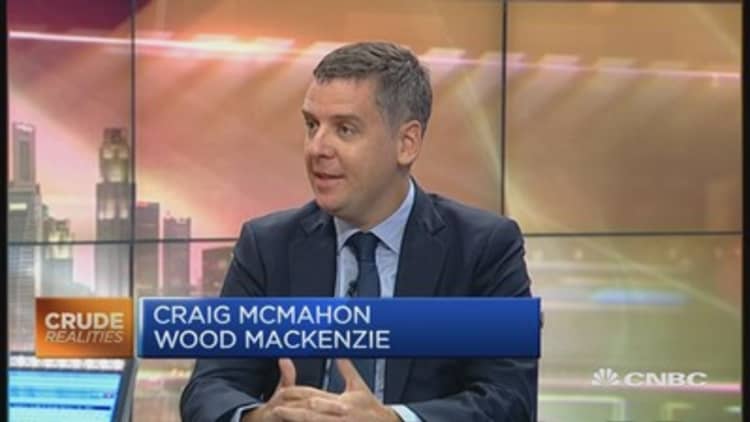
When the Organization of the Petroleum Exporting Countries meet in Vienna on Friday, the chatter will be on whether the oil cartel will finally cut production to boost prices—but the re-entry of Indonesia could complicate that.
Seven years after it suspended its membership, the Southeast Asian country had asked OPEC earlier this year to reactivate its membership as the country aims to benefit from closer ties with oil producers.
Although the country produces just about 850,000 barrels of oil a day—half of what it consumes and a fraction of the 30 million barrels a day that OPEC members collectively pump—its entry as the 13th member into the group means its output will have to be factored into group's production ceiling.
Friday's semi-annual meeting is being closely eyed given the recent sharp in oil prices, which are currently hovering near six-year lows.
In fact, with the entry of Indonesia, OPEC may even have the "perfect excuse" to lift total oil production ceiling, said Barnabas Gan, an analyst at OCBC in Singapore who is projecting a supply hike to 31-33 million barrels a day after Friday's meeting.
OPEC, which supplies 40 percent of the world's oil, is already producing more than its approved 30 million barrels a day ceiling so any rise in the quota would have a token effect, said watchers.
Wood Mackenzie's Asia-Pacific research head Craig McMahon concurred with Gan's assessment that production ceiling may be raised although Indonesia's entry is likely to make little significance to output, he said.
Still, some market watchers are perplexed by the move as Indonesia is a net oil importer that would prefer lower energy prices.
The country's entry into OPEC will make it the group's only Asian member, offering insight into the views of oil consumers , according to those in the cartel.
While cutting production could support the beleaguered oil industry that has been plagued by a supply surplus amid slowing demand, the cartel has been holding out to squeeze out competing shale producers in the U.S.
Leading the game plan is largest OPEC producer Saudi Arabia, although smaller members such as Venezuela are jostling for an output cut as government revenues slump.
Despite some speculation that Riyadh is softening its stance, Saudi Arabia is likely to hold out.
"Countries like Venezuela and Iran really want to see Saudi to cut production whereas the Saudis really want to keep prices lower for longer to really drive out some of this over-investment we've seen in the market. There's shale supply coming onto the market that has really distorted the supply fundamentals," Bernstein's oil and gas analyst Neil Beveridge told CNBC's Squawk Box on Friday.
"What Saudi is really trying to do is to really do what's in their best interest, which is to create a more sustainable long-term market, and that means trying to push out some of this excess supply...this is about really trying to rebalance the market."



